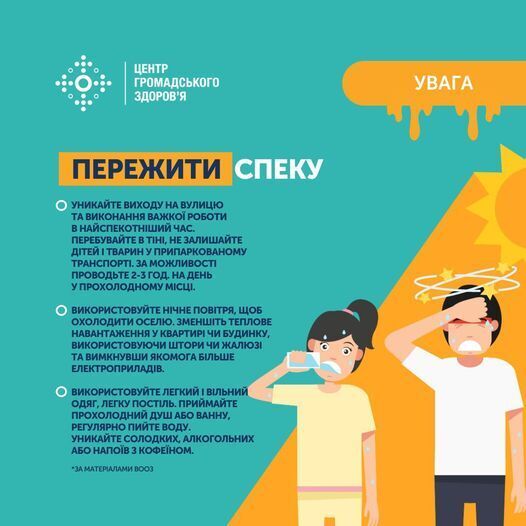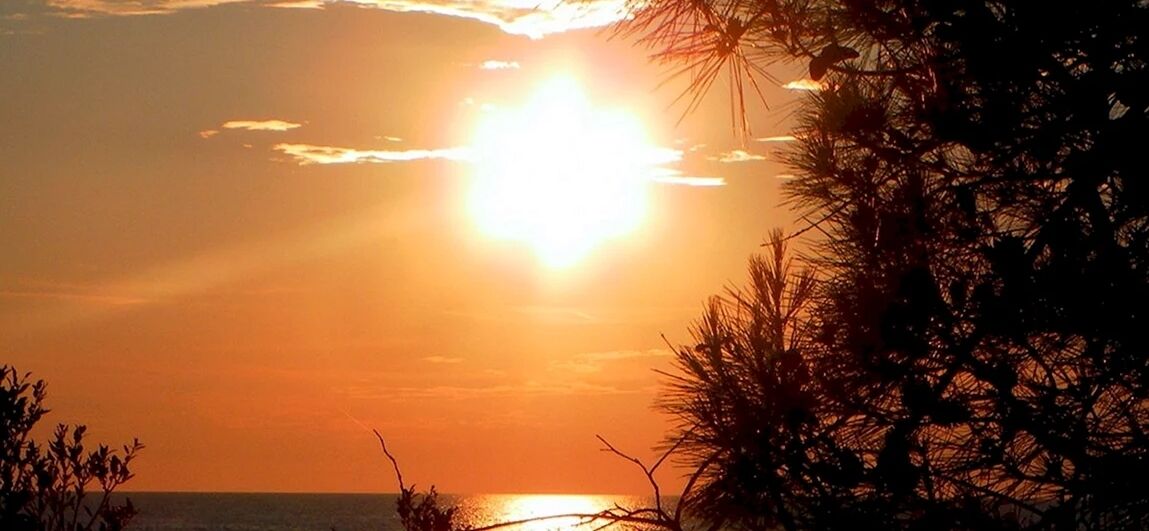News
How to survive the summer heat: useful tips
Hot weather is returning to Ukraine. Unfortunately, not everyone can use air conditioners, and electricians do not recommend overloading Ukraine's energy system. Therefore, it is important to remember simple rules that will help prevent the negative effects of heat on the body.
Experts from the Public Health Center of the Ministry of Health of Ukraine showed how to do this. Their advice applies primarily to vulnerable groups, such as the elderly, infants, people with chronic diseases and those who work outdoors, but it will be useful to anyone anyway.
The tips are quite simple but effective:
Keep cool
During hot weather, it's important to stay cool to avoid the negative effects of heat on your health. Reschedule activities for another time.
Stay away from the heat
Avoid going outdoors and doing strenuous work during the hottest times of the day. Stay in the shade, don't leave children and animals in parked vehicles, and spend 2-3 hours a day in a cool place if possible.
Keep your home cool
Use night air to cool your home. Reduce the heat load inside your apartment or house during the day by using curtains or blinds and turning off as many electrical appliances as possible.
Keep your body cool
The most important thing is to drink enough water. Also, wear light and loose clothing and light bedding, and take a cool shower or bath.
Drink water. Remember to avoid sugary, alcoholic beverages and caffeine.
Staying in direct sunlight for long periods of time can be dangerous, as almost everyone knows. However, staying in hot rooms can be just as dangerous. Heat stroke is no better than sunstroke.
Sunstroke is a pathological condition. It is a disruption of brain function due to prolonged exposure to sunlight on the head not covered by a hat. Heat stroke is a form of hyperthermia that causes a sharp rise in body temperature. Heat stroke differs from sunstroke in that it overheats the entire body, not just the head.
Signs of heat and sunstroke:
- heat rash: clusters of red pimples or small blisters
- muscle cramps in the arms, legs or abdomen
- short-term loss of consciousness
- increase in body temperature
- nausea
- vomiting
- fatigue
- weakness
- headache
- dizziness
- lack of sweating
- hot, red or flushed dry skin
- rapid pulse
- shortness of breath
- hallucinations
- disorientation
If you suspect heat or sunstroke, experts strongly advise you to call the emergency medical service.





























